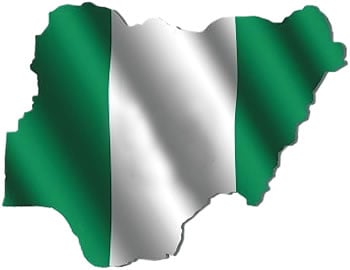At a time, it was convenient to blame the irony on long military rule the country went through in two stanzas for 28 years. But close to 20 years of stretched democratic rule thereafter with the country still unable to translate huge natural and human resources into appreciable development, it becomes difficult to tell what exactly the problem is with the country. It was in the first republic which came to abrupt end on January 15, 1966 that the nation experienced ample developmental strides. Some Asian countries we started with on same note of promise as emerging middle economies have climbed the rungs to become the famous Asian Tigers that are now global economic engines. In Africa, Nigeria is not faring better notwithstanding claim of being the giant of the continent. Available indices on MDGs and APRM rated Nigeria low in compliance to stipulated goals and peer rating. Optimism offered at the inception of the nascent democracy has ebbed, giving way to widespread despair. The scenario raised the critical question of whether democracy offers the panacea for Nigeria’s developmental challenges.
But at a time, out of our collective experience as people, we came to a conclusion that received concepts, such as democracy, which work elsewhere seldom work here. And we had come to the apt conclusion that such concepts should be domesticated for effective performances. That led to such narratives as “home grown democracy” and “home grown solutions.” Agreeably, these terms have been muted on occasions for self-seeking pursuits. This notwithstanding, we may have to consider such resorts albeit altruistically, so that we can get such concepts to perform optimally in the national interest. Recently, the Senior Executive Course 39 (2017) of the National Institute of Policy and Strategic Studies, Kuru recommended “home grown solutions to Nigeria problems”. President Muhammadu Buhari at his presentation of 2018 budget to the joint session of the National Assembly spoke in the same vein, calling for “Nigeria-tailored solutions” to Nigeria problems.
As a nation we had made attempts at home-grown solutions. The secret ballot system, for instance, is core integral of democracy because it offers freedom of choice and absence of cohesion, but it failed in Nigeria during the first and the second republics and we had to devise a home grown alternative “the open-secret ballot system” which has really worked and enhanced the credibility of the electoral process. That is home-grown initiative that has come to be accepted by Nigerians and which called attention to the need for far reaching home grown features to our democracy.
The argument for home grown democracy is global and it is hinged on the fact that development should emanate from home grown experience of a people and that development must reflect a people’s historical experience and cultural context in order to be beneficial. Culture, it should be understood guides and directs the people and engenders a sense of responsibility. These functions are truest tenets for good governance. This proves the points that democracy or any other concepts for that matter should be contextual and that what suits US for instance, may not suit Nigeria or any other country for that matter. It is probable therefore that Nigeria’s problem at consolidating democracy and make it drive development emanates from the fact that the country did not sufficiently lend its democracy to its cultural peculiarities. However, this is not to suggest the compromise of the basic institutions of democracy such as constitutionalism, periodic election, rule of law and human rights without which we are no longer practicing democracy. One other reason for tilting our democracy to suit our context is to recognize the pluralistic nature of the country and deploy democracy to get our diverse people to work for common goals as a nation. Peaceful co-existence in plural society is hallmark of democracy. This is why agitations for restructuring which has gotten spiral with advent of democracy should be resolved at this time.
But then, we have to pay adequate attention to the fact that democracy is both a process and a system. As a process, it is ongoing and evolving and in this regard, we can say that we have recorded some success because since 1999, we have been having periodic elections, notwithstanding whether the elections are fraught with irregularities or not. But periodic free, fair elections, as former Tanzanian President Benjamin Nkapa, pointed out are not enough to legitimatize democracy. As a system however, democracy calls for far reaching integration of the people; wide range consultations and the supremacy of the will of the people. It is here we have problems integrating democracy to make it drive development in that development arises from the people and institutions where and when the political leadership has ensured a micro-macro connection. However, the political class has not succeeded in creating that critical interface between the people and democratic institutions. Consequently, democratic principles and values have failed to take roots in close to 20 years of straight democratic rule. This calls to question the rationality of the politicians who are expected to be civic minded. Of course there is the argument that the politicians, having spent fortunes to get elected, often hold that they literally bought their way to office and that the resultant dividends are their exclusive preserve. So they quickly move to get the government closed and unaccountable. Yet government responsibility in a democracy is to listen to the people, respond to their yearnings and deliver on welfare. As government gets increasingly shut and becomes unaccountable, some schools of thought concluded that democracy has failed in Nigeria. Perhaps this conclusion is hasty, but nonetheless, there are bases for anxiety.
What comes to the fore when democracy is considered from the point of view of being systemic and institutional is that democracy and development are reciprocal and should consequently impact on each other. The question therefore is not whether Nigeria’s democracy is working or not but what kind of democracy should Nigeria adopt that will work and bring the desired result. That is, the kind of democracy that can prioritize the restoration of the middle class which experts hold is best suited to engender growth. It should be noted that the only reason Egypt ranks higher than Nigeria on the scale of City of Opportunity is its flourishing middle class.
Perhaps, we have to ascertain how attractive polities elsewhere, particularly in Asia, are able to use democracy, as they understand it, to precipitate development. China, Indonesian, India and some other countries do not operate classical democracy along strict western line but rather suited the concept to core national peculiarities. Nigeria, as much as these countries, operates in a compelling cultural environment that cannot be wished away or ignored but wired-in to give us a home grown brand that works.
China, a virtual communist country deliberately relaxed the command structure of its society and domesticated democracy in a manner that suits its environment by instituting limited franchise to get its vast population participate in affairs of the country at the grassroots. The country has warned that a full blown democracy would not serve its national interest. This is in response to the argument over whether China should go beyond its limited franchise to democratize entirely in line with the Western tenets of democracy. But there is the swift counter argument of whether China will be able to sustain its development with western style of democracy. The synthesis has been that a vibrant China will serve global interest more than a fully democratic China which could recede into under development and precipitate the worst humanitarian crisis ever witnessed. The US has come to terms with this fact and convinces itself that it loses nothing if China retains its status quo other than to strive harder to address the balance of trade deficit that favors China and work out a military pact so that China does not pose a security threat but an ally in the Asia Pacific. As it were, China has adopted a democratization that reflects the cultural context of the people and with which it sustains a vast economy whose GDP is a whopping USD 9.24 trillion, the second largest in the world after the US.
As China devised own tents of democracy suited to its circumstance, the rest of countries in the Asian Pacific which are also high growth economies, particularly Indonesia, have come together under the auspice of Institute of Peace and Democracy to explore means of deepening home contents of democracy that can drive development. This probably explains why the region has emerged the hub of industrialization which gave countries there the appellation of Asian Tigers. These countries agreed that democracy makes sense but they see greater sense getting the concept to conform to own peculiarities.
Our attempt to get democracy to work for us may then require that we fuse a kind of hybrid in which some elements of the British Parliamentary system which is cost effective, the US separation of power, which guarantees the rule of law and the Chinese populist tendency, which ranks the people foremost are aggregated with some home blend for a democratic model that works and addresses our developmental challenges. We need not play to the fancy of the west, but instead be pragmatic enough to do things differently in a manner that suits us. It is entirely pointless aspiring to attain the US model of democracy for which our Constitution is tailored from the onset. The Ghanaian pragmatism offers us a lesson in this regard. But before we arrive at a conclusion, it is important we ascertain reasons our nascent democracy is not supporting developmental efforts.
- Babalola Jogor, an engineer, sent in this piece from Ibadan





